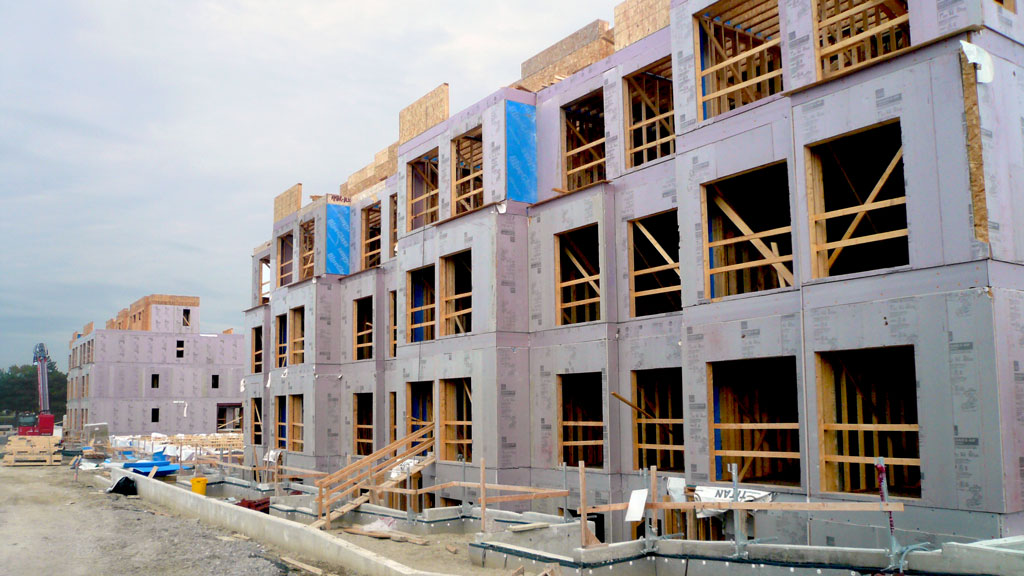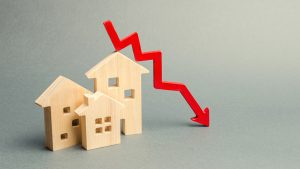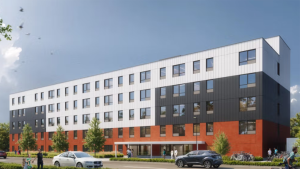The critical lack of housing threatens more than just our economic future.
It is exacting a profound social and psychological toll, especially on young adults, immigrants and lower-income families.
In fact, the social value cost attributed to housing unaffordability in the GTA is approximately 1.75 times greater than that of cancer, a stark and troubling indication of the severity of the crisis.
A study, titled Locked Out: Social Value Cost of GTA’s Housing Crisis, was done by the Canadian Centre for Economic Analysis (CANCEA) for the Toronto Regional Real Estate Board (TRREB).
It aimed to provide a deeper understanding of the challenges posed by lack of affordable housing in the region.
Researchers looked at demographic, economic, financial and personal data and explored how their social and psychological well-being might improve if unaffordability were addressed. The analysis involved more than seven million GTA residents and official statistics.
Social costs higher than major health challenges
CANCEA used a variety of Statistics Canada data to better scope the size of stresses and translate them to financial terms. They concluded in 2023 alone, the negative social value cost was $37 billion.
Moreover, the social value cost related to housing unaffordability aligns closely with the costs associated with diabetes and represents 76 per cent of the social value cost of heart disease, further emphasizing its extensive impact.
The comparisons place the issue of housing affordability in the same realm as some of the most significant health challenges faced by society.
Researchers found housing unaffordability looms as a major disruptor, silently eroding the well-being of individuals and communities alike.
“Households spending more than 50 per cent of their income on housing in the GTA experience a lower well-being score, when considered in total, it is comparable to the burden of some of the most significant health challenges faced by a society,” CANCEA president and CEO Paul Smetanin said in a statement.
The study notes that, in the GTA, young adults contend with exorbitant housing costs, hindering their path to homeownership.
Newcomers and renters face additional hurdles grappling with integration challenges and financial strain due to escalating rental prices.
According to TRREB, it’s clear policy-makers at all levels of government need to take action and address the social impact of housing unaffordability.
Together, they must move forward with determination and empathy, working collaboratively towards a future where every individual has access to safe, affordable housing, TRREB said in a statement.
“Rising housing costs and the resulting unaffordability are not only subjects of economic debate but are also critical social issues with far-reaching consequences for community cohesion and sustainability,” the study reads.
The true costs of this crisis
The research quantifies the impact of housing unaffordability through a social value perspective. Social value assessment fills the gap left by traditional financial and economic metrics, providing a more complete view of population well-being, social cohesion, and sustainability.
The study explored how well-being levels in the GTA might improve if unaffordability were addressed. Additionally, from the well-being reduction statistics, researchers were able to calculate the monetary equivalent of the negative change in well-being associated with housing unaffordability and compare this to the social value costs of major chronic diseases in the GTA.
“Overall, this analysis goes beyond conventional economic and financial factors, delving into well-being and its social value implications,” TRREB said. “Combined with economic impact analysis, the loss of well-being and its financial equivalent offer a comprehensive view of the true costs of this crisis, encompassing not just monetary factors but also the effects on the daily lives and satisfaction of individuals and communities.”
The analysis reveals a “disturbing” reduction in well-being among those affected by housing unaffordability, noting the social value cost of the decline is especially notable among renters and younger demographics, highlighting a societal issue that disproportionately affects specific groups.
“This reduction in well-being is not a trivial concern; it holds substantial social value implications,” the study states.
The finding that the social value cost of housing unaffordability in the GTA is comparable to, and in some cases exceeds, the social value cost of major chronic diseases like cancer and diabetes is a poignant revelation, according to the study.
“The implications of these findings indicate that addressing housing unaffordability is not just a matter of economic policy but a crucial aspect of improving overall societal well-being. It is imperative that policy-makers and stakeholders acknowledge the far-reaching implications of this crisis and implement strategies that address the root causes of unaffordability.
“Only then can we hope to restore the well-being and social value lost to this pervasive issue and ensure a more equitable and satisfying life for all residents of the GTA.”









Recent Comments